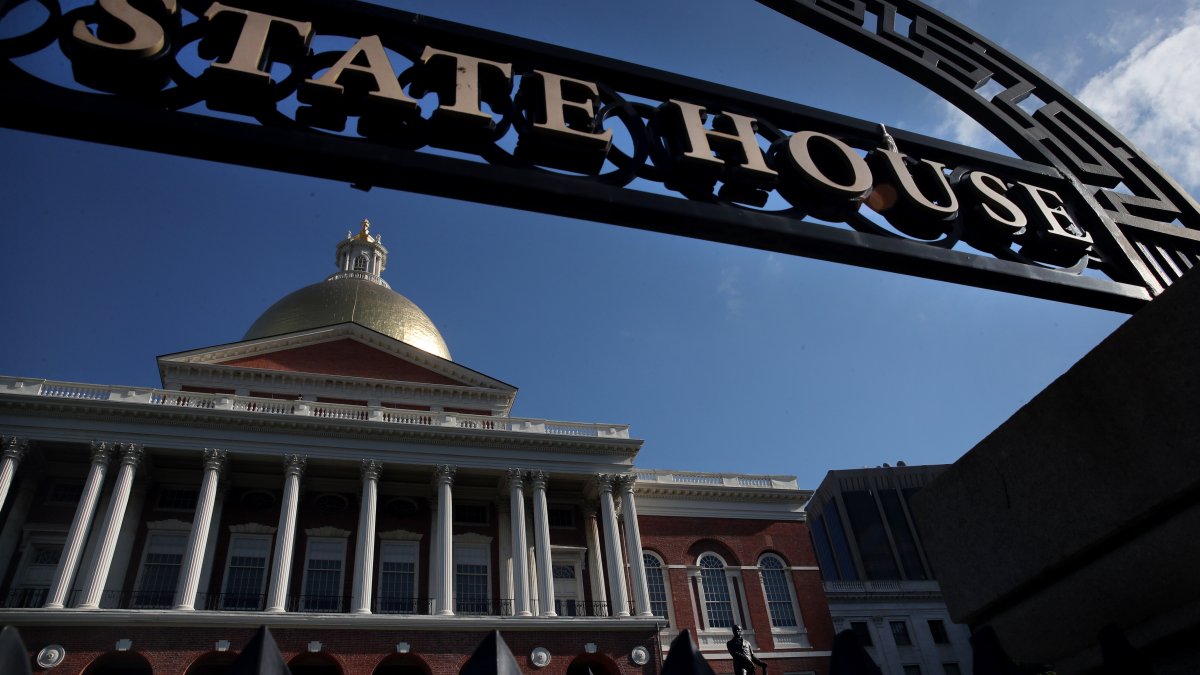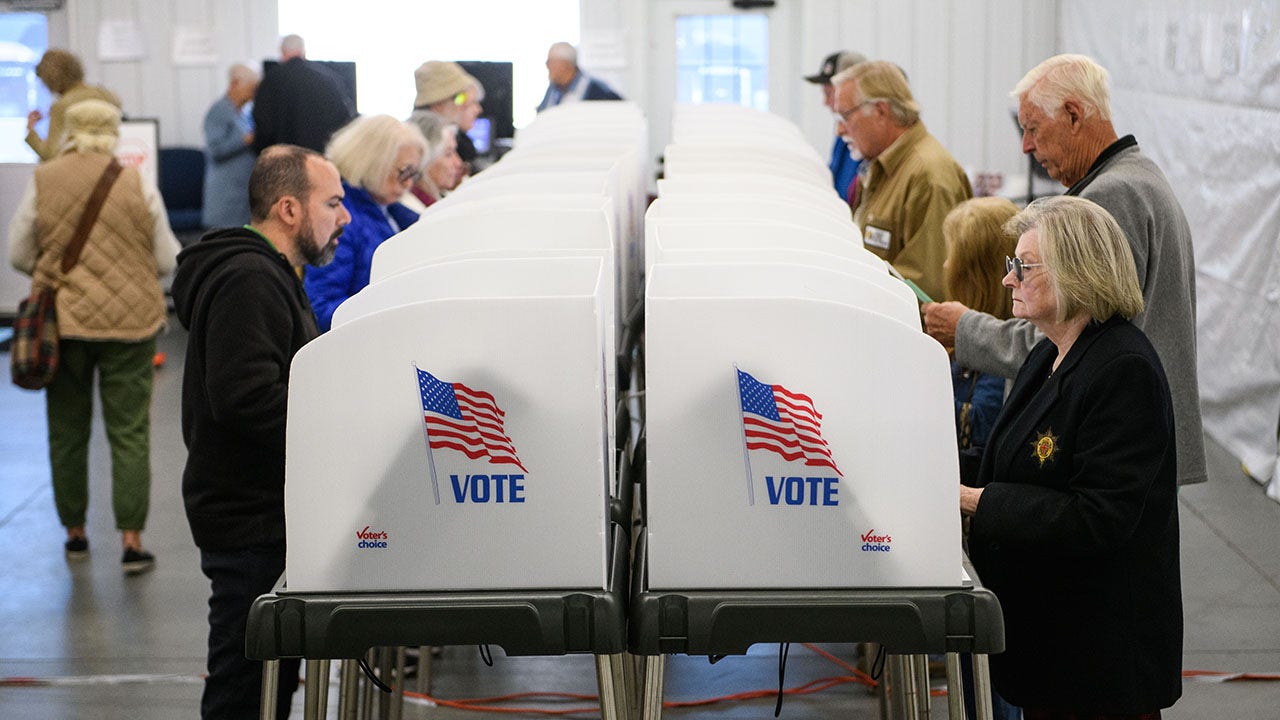The House made the first legislative foray into the state’s slow-burning emergency shelter system crisis Wednesday, approving $250 million and a list of specific requirements for the Healey administration as part of a larger budget bill that also addresses a slew of Beacon Hill loose ends and completes the accounting for the budget year that ended in June.
The long-awaited supplemental budget bill was adopted after little debate on a roll call vote of 133-25 just before 6 p.m. Senate leaders said that branch will take up its own version of the bill in “short order,” and then House and Senate Democrats will have to iron out any differences before sending a final version to Gov. Maura Healey’s desk.
“This $2.8 billion supplemental budget will close the books on the fiscal year 2023. With a net cost to the commonwealth of $1.69 billion, this legislation will allow us to end FY23 in a balanced and fiscally responsible manner. A majority of the items contained in here are deficiencies that we need to pay or reauthorizations of past appropriations,” House Ways and Means Chairman Aaron Michlewitz said. “But the area that has received the most attention over the past few weeks is the request from the governor to make further appropriations to our emergency family shelter system.”
The House bill (H 4167) would authorize the $250 million infusion into the shelter system that Healey requested nearly two months ago, before the governor announced that she was capping the emergency shelter system at 7,500 families.
The House bill establishes requirements on how the additional appropriation can be used.
“We are proposing to provide the governor with her request of $250 million, but it is no blank check,” Michlewitz said.
Of greatest note is the House requirement that $50 million of the $250 million to go toward “the identification, acquisition and operationalization of a state funded overflow emergency shelter site or sites” for families placed on a shelter waitlist.
Out of the remaining $200 million for emergency assistance shelters, the House bill would direct $75 million toward reimbursing school districts for the costs of enrolling new students who recently arrived, $18 million for temporary shelters, $12 million for clinical and wraparound services, $10 million for resettlement agencies, $6 million for municipal support, $6 million for shelter staffing needs, $5 million for workforce authorization programming and $3 million for family welcome centers, according to a bill summary.
“While we wait for Washington to get its act together, we must confront the issues that are on the ground. And that is a shelter system that is being asked to house significantly more families than it was designed for,” Michlewitz said.
He added, “Our municipalities and school districts are taking the brunt of the day-to-day life of housing these families and providing children with the education and the needs that come with that. And that has left us in the Legislature, as well as many in the public, struggling to get answers on what is going on each and every day in our own communities. Despite these questions and frustrations, we have always provided the resources needed to manage the crisis.”
The House budget chief said he expects the $250 million outlay will get the state’s shelter system through the next winter months and into the spring. An initial $325 million allocation for shelter costs is expected to run out in January.
“To be clear,” he said, “we face some hard decisions and choices ahead for 2024 and beyond.”
During his introductory speech on the House floor Wednesday, Michlewitz asked fellow representatives to center their debate “around the facts that are before us today, and not misinformation that has casually been thrown around recently.”
“These families who have come to the commonwealth are [legally] here while their asylum process is underway,” he said.
Debate was fairly limited Wednesday afternoon. After Michlewitz’s intro, the House went into a lengthy recess as leadership chose which of the 61 amendments would be adopted as part of two consolidated mega-amendments. The first of those bundles, made available after 4 p.m., dispensed with 36 amendments but did not necessarily incorporate them into the supplemental budget. The second consolidated took care of what was left.
Rep. Paul Frost put one of his amendments up for consideration on its own after it was slated to be rejected in the first consolidated package. The Auburn Republican’s amendment would require that a family or pregnant person live in Massachusetts for at least one year before becoming eligible for emergency shelter. It included exceptions for domestic violence situations, natural disasters and more.
“I think that’s a fair amount of time to say that you’ve been here, that you’ve been participating in the community and that if you do need emergency shelter, then you could have it,” Frost said. “And if you want to discuss or further amend or debate lowering that figure to six months or whatever, I’m willing to talk. But the fact is it can’t be 45 minutes, it can’t be a day, because it won’t stop. They’ll continue to come and be sent here. And it’s not their fault, I understand that. They’re going where they’re told, they’re going where other groups are sending them because they’re told they will be taken care of.”
Rep. Alice Peisch of Wellesley argued against Frost’s amendment, telling representatives that she does not think it would survive a court challenge or that it would actually staunch the flow of migrants to Massachusetts.
“I certainly appreciate the concern that gives rise to this amendment. However, the better approach, I believe, is that that has been proposed by the Ways and Means Committee with respect to requiring that the administration set up an overflow site or sites within 30 days and, if they do not, then the cap will not go into effect,” Peisch, the House’s assistant majority leader, said. “It seems to me that that is the better approach. And I think that that is one that we have put forward due to, unfortunately, the lack of clarity that we have been given to date by the administration with respect to what happens when families start to arrive once that 7,500-family cap has been reached.”
Frost’s amendment was rejected on a 28-126 vote that broke mostly along party lines. Democrat Reps. David Robertson of Tewksbury, Jonathan Zlotnik of Gardner and Colleen Garry of Dracut voted with the Republican caucus.
Though the shelter funding got the bulk of the attention, most of the money in the budget bill — about $2.1 billion — would go toward MassHealth for “caseload adjustments.” It also includes nearly $300 million for a reserve to fund collective bargaining agreements with state employees and $10 million in additional flood relief for municipalities hit by severe rain events this summer.
House budget writers also picked up the loose ends of a July supplemental budget — including $100 million for pension obligations related to an early retirement program, $75 million for special education reimbursements and $60 million for a DTA caseworker reserve — that didn’t already make it across the finish line.
A House Ways and Means Committee spokesperson said the bill would authorize spending from both the state’s general fund and a “transitional escrow fund” full of one-time relief dollars. The legislation empowers the administration to decide how much money to draw from each source, the spokesperson said.
House Speaker Ron Mariano previously said Michlewitz and Senate Ways and Means Committee Chairman Michael Rodrigues were negotiating the terms of the final supplemental budget before it emerged in either branch, but Michlewitz downplayed that notion this week.
“We had some discussions, but this is — I don’t want to speak for the Senate. This is the House’s version of what we think is the right step to be taken,” he said of his private talks with Rodrigues.
Senate President Karen Spilka pledged Monday that her branch will take up the supplemental budget in “short order” following discussions with lawmakers. There’s no Senate formal session scheduled this week, though Senate Democrats plan to meet in a closed-door caucus on Thursday morning.
Both branches must conclude formal lawmaking sessions for the year by Nov. 15 under legislative rules, though the possibility exists that the supplemental budget could move during informal sessions that any single member could derail.
(Copyright (c) 2023 State House News Service.




























